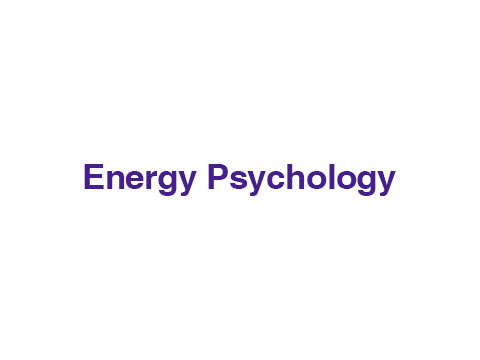| Description Experts Expert Contributions Featured Books for Sale |
Videos Articles Research Organizations |
In the News Additional Resources Coming Later Contributors |
Description
Energy psychology is based on the broad theory that mental health and physical health conditions are related to altered flow and function in the body’s electrical energies and energy fields. The idea that the body’s electricity and energy can be manipulated to produce healing and spiritual development is a root of many ancient, holistic approaches to medicine.
Energy psychologists believe physical interventions to regulate electrical signals or energy fields can be combined with evidence-based exposure therapy to retrain the brain and help individuals overcome any physical and emotional reactions affecting health and well-being. Traumatic events trapped in the mind-body system can have a negative impact on a person’s outlook, experiences, emotional regulation, and ability to relate to others, and it is believed energy psychology techniques can help a person in therapy release these events more rapidly than they might with talking therapies alone.
A basic principle underlying energy psychology, as well as many other types of therapy, is the idea that traumatic memories and fears are problematic for some individuals because these memories and fears create a state called hyperarousal. Hyperarousal can be described by increased psychological and physiological activity involving muscular tension, decreased tolerance for pain, feelings of dread, jumpiness, difficulty sleeping, and increased emotional response. Many types of therapy, especially those that treat conditions such as anxiety and posttraumatic stress, help people reduce states of hyperarousal.
Specific to energy psychology is the theory that stimulation of meridian points can send signals to the brain to help reduce hyperarousal. Energy psychologists believe when this reduction in hyperarousal is paired with the memory of or exposure to things that produce anxiety and negative emotion, the body and mind become better able to create new, healthier responses. Proponents of energy psychology believe the repeated pairing of exposure and meridian point stimulation can lead individuals to experience less hyperarousal when they are exposed to previous triggers of hyperarousal outside of therapy.
Early developers of energy psychology include Fred Gallo, Roger Callahan, and David Feinstein.
goodtherapy.org/learn-about-therapy/types/energy-psychology
http://www.innersource.net/ep/
energypsych.com/what-is-energy-psychology/

Experts

Featured Books:

Videos:

Articles:

Research:

Organizations:

In the News:

Additional Resources:
Contributors:Professionals:
Compiled By:
|
![]() Expert
Expert
![]() Professional
Professional
![]() Outreach Leader
Outreach Leader
![]() Moderator
Moderator
![]() Contributor
Contributor



